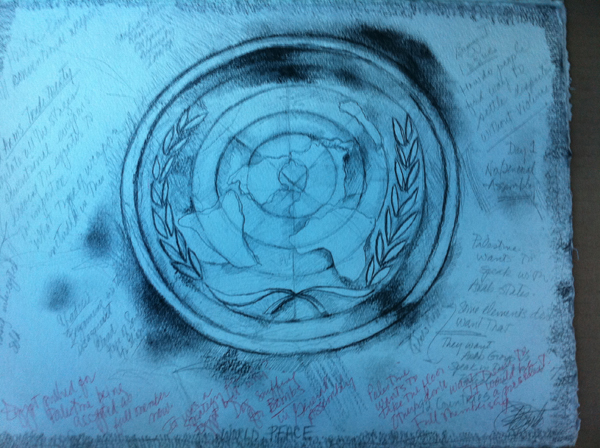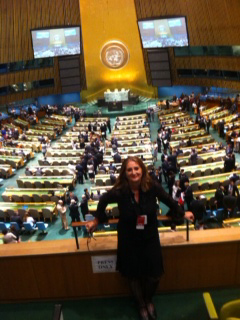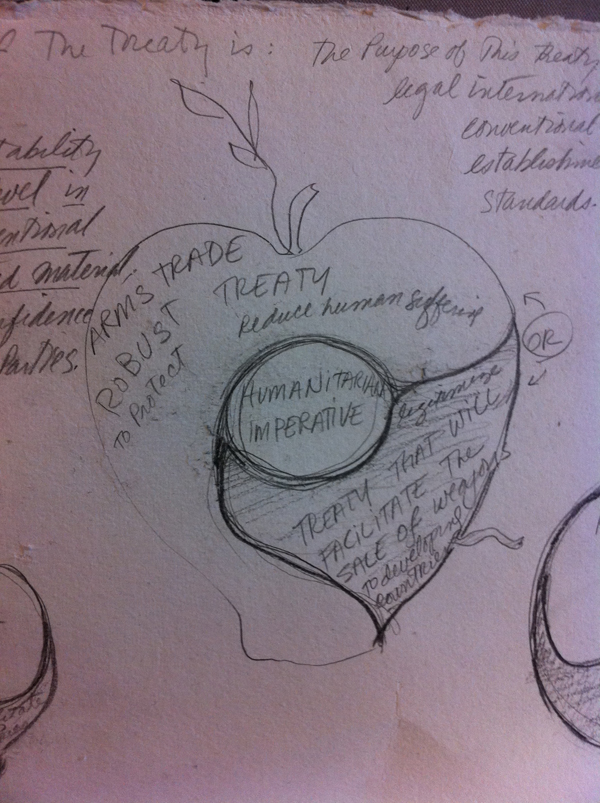
The world has never had an arms treaty. Since 2006 the United Nations has implemented meetings to proceed along this path.
Two thousand people a day die globally from conventional, non-nuclear arms.
 At this week's historic closed meeting at the United Nations to hammer out a global arms trade treaty, the greatest question was: What would a global arms trade treaty look like? Will it protect the human imperative, or will it facilitate the sale of weapons to developing countries?
At this week's historic closed meeting at the United Nations to hammer out a global arms trade treaty, the greatest question was: What would a global arms trade treaty look like? Will it protect the human imperative, or will it facilitate the sale of weapons to developing countries?
Regulations are in place for drivers' licenses, commerce, dairy products, etc., but there is no global regulation for arms trade, which affects human beings, causing death, injury, rape, displacement, loss.
Watching the countries of the world initiate an agreement that will be accepted globally, the balance sways between peace and protection as a part of every conversation and statement.
The largest economically profitable countries are the biggest weapons dealers. The weapons sold legally are also reported more accurately by countries with the funds and intention to keep accurate records.
When I entered the General Assembly on Monday, the room remained inactive due to a boycott by Egypt demanding that Palestine be allowed to attend the meeting. Meetings were held off for two days. Palestine is in attendance.
Human beings are territorial. We are of the animal kindgom. We already know that there are problems inherent in getting along with each other, our families, our neighbors, coworkers, everyone, all the time. Is it that our capacity to create weapons is ahead of our capacity to get along with each other? Or is it that our capacity for creating weapons powerful enough to protect us has given people the opportunity to think through methods for getting along with each other?
What I am interested in is seeing if and how, at this historic meeting of humanity, we can agree on a precise global language to reduce harm and increase protection.
We begin today with:
The purpose of the treaty is...
